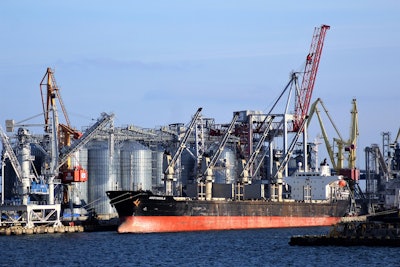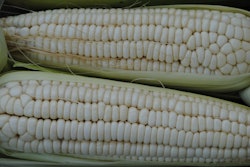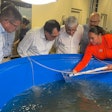
Negotiations between Russian President Vladimir Putin and Türkiye's President Tayyip Erdogan is seen as the last remaining hope to extend a grain deal that is set to expire next week.
The Black Sea Grain Initiative, which has allowed Ukraine to export grain from its Black Sea ports despite Russia's invasion, was brokered by Türkiye and the UN in July 2022 and will expire next Monday, July 17.
It was reported July 8 that Erdogan is asking Putin for at least a three-month extension of the deal. Since its inception, the deal has been extended for 60-day periods several times.
According to Reuters, Russia's RIA news agency reported there is very little optimism for an extension to the deal.
Russia has threatened to quit the deal several times, saying demands to dispatch its own grain and fertilizer have not been met.
Russia's demands include reopening a pipeline carrying ammonia from Russia to the Ukrainian Black Sea port of Pivdennyi and the reconnection of its agricultural bank Rosselkhozbank to the SWIFT international payment network. Last month, the pipeline was damaged in three places, which Russia described as "sabotage." And last week, Russia rejected a compromise for reconnecting its bank, saying the proposal would take too long to implement.
A Bloomberg article said termination of the grain initiative could lift global food prices given Ukraine’s importance as an exporter of grains as well as exacerbate a global food crisis.
Ukraine's National Resistance Center says Russia exporting stolen grain to China
On July 8, Ukraine's National Resistance Center said Russia is implementing measures in occupied Ukrainian regions to export stolen agricultural products, including grain, to China.
Russia has been disguising stolen Ukrainian grain as its own harvest and exporting it to Syria and Türkiye, the National Resistance Center said.
According to reports, the Russian software tools are able to automate the process of collecting and analyzing information on agricultural products, which can then be exported outside the Moscow-led Eurasian Economic Union (EEU).
Using these programs will allow Russia to expand the geography of looted exports, in particular to China, the National Resistance Center said.


















